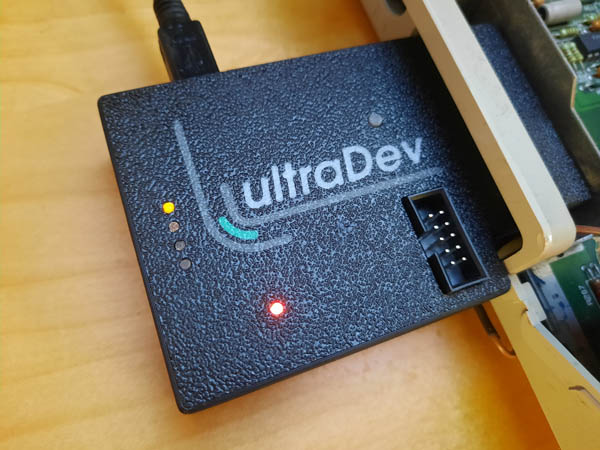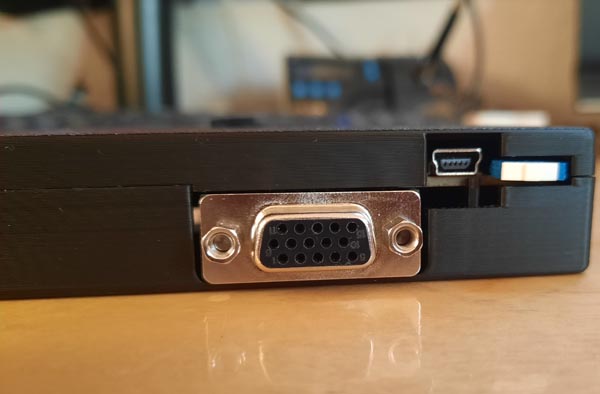
Some pictures/videos i did during development of the cartridge...
Pictures of the new case


ultraDev+ has now HDMI with alot more colors and on board ram . This was a test to use the internal ram as video ram.
With a few hardware and coding tricks, it is possible to write from the Atari to the RAM at full speed. Without hardware mods on the ST.
Normally, writing to the cartridge port is not possible, and on top of that, the cartridge port is slower. To find out how this works, read the diary (04.03.2025). What you see here is the debug screen of ultraDev+.
The ultraDev+ rev. a (right) did not exist for long. Shortly after I finished the prototype, I decided to do a global redesign. The rev. b (left) has the following new features: Bus interface, HDMI, SD card holder, 128kb memory, additional buttons, 24bit Audio Dac.

The upcomming ultraDev+ rev a cartridge. As you can see with the new revision it's possible to change the computer connector. The idea is do add support for c64 or vc20. Basically all retro computers are possible.

The new revision e. Looks sexy mh?

Small video of a build up using the reflow soldering. It is replayed with 8x speed means the normal video is about 20 minutes.
Soldering for the lower side of the new FPGA board done with the self made stencil. Looks almost perfect.

The bitmap mode of the debug screen can display an image of 128x128 pixels. This is part of the examples how to display an image.

My logic analyzer I use the the DSLogic Plus. I like that one. it has max. 16 Channels and up to 400mhz sampling (in that speed you only can sample eh I think 4 lines).

See the ultraDev cartridge folder share from pc in action incl. doing changes on the folder. More infos you can find in the diary. The crap at start up of Sea of Colours hmm have to trace down. Maybe the folder is a little too slow... anyway.
Unforunately my floppy emu has a loose connection and the atari boot up needs some time...
See the ultraDev cartridge hd support running on a ste in action . More infos you can find in the diary.
See the ultraDev cartridge in action starting a prg. Starting an round about 780kb file in 0,94 seconds. Means the data is transfered with around 830kb/s.
The ordered samples of the PCB:

The new rev.c prototype
The new revision c of the PCB is done. Looks like this.

The cartridge connected to a STE. Yeah my STE looks always like this doing alot hardware things with the STE currently.

After a reset the Atari shows this screen waiting for commands from the host computer.

That's the FPGA development board i use. TBH fully overpowered for this job but it's cheap around 30 Euro. Would be possible to do alot more with it than just a cartridge. For example implementing a open source 56000 dsp that would make the atari to a small small falcon. Just an idea but nothing i'm planning to do ;)

The first version of the cartridge which didn't work at all. Well forgot about the 5V the Atari is running and this roasted the FPGA unfornately.

Second version of the cartridge which worked. YAY!... You can see the small difference on the left the bus transceivers. As you can see some last minute changes are done anyway. The big chip is the ram for Bugaboo the smaller ic on the right is for usb communication which enables usb 2.0 full speed.

The tool to update the FPGA. I really love it ;)
